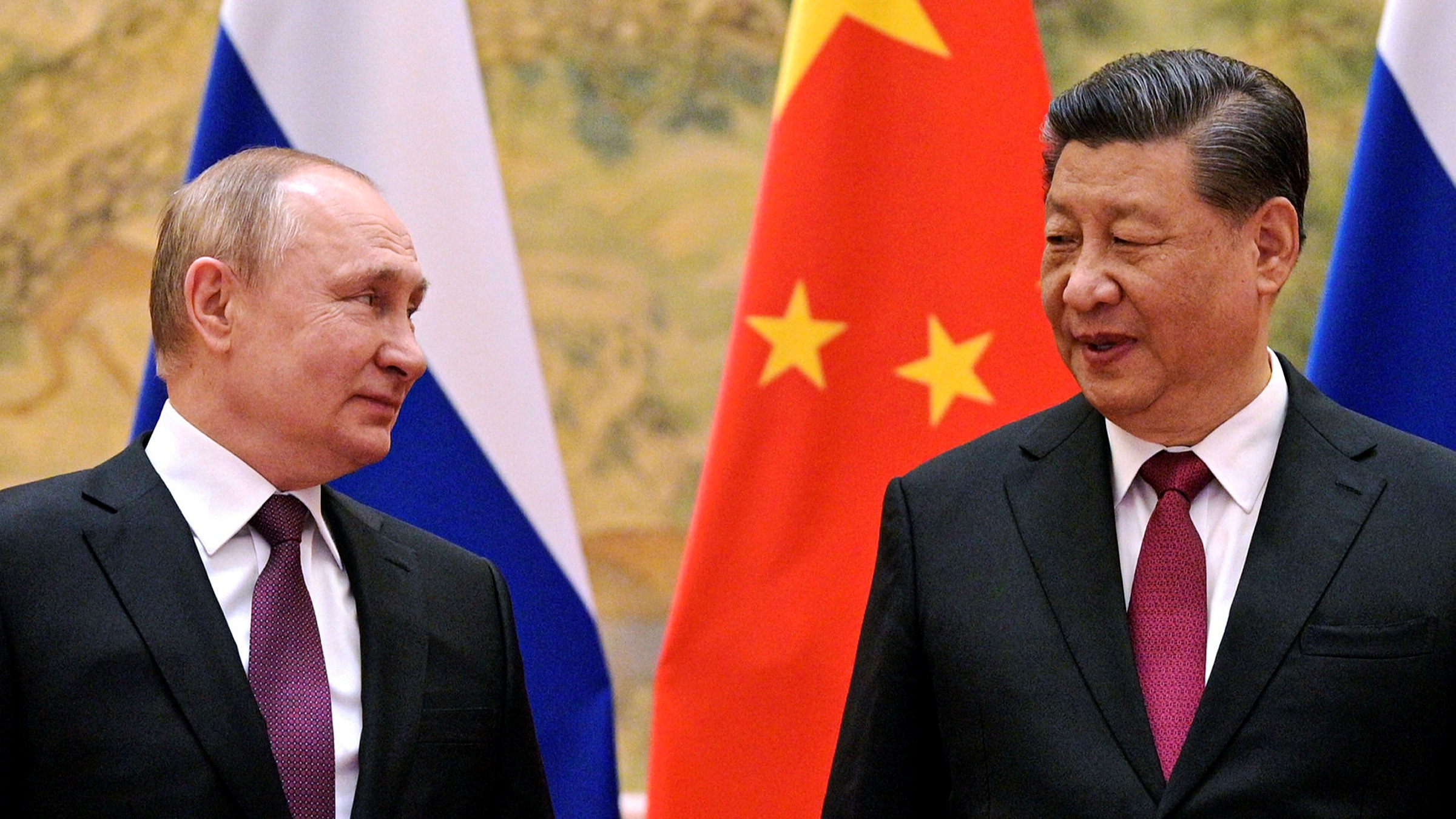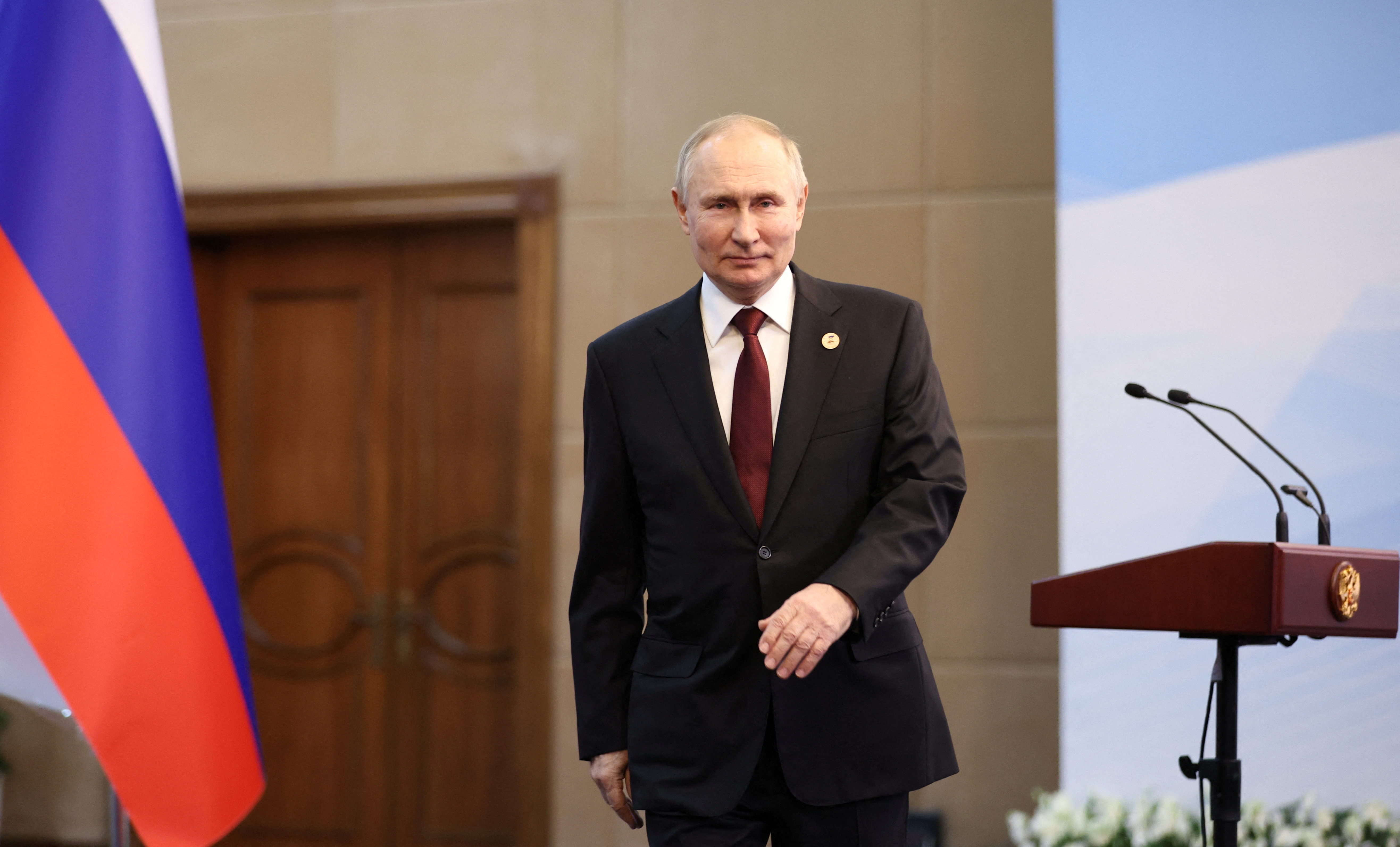Putin Is Stupid - "Like our ancestors, we will solve any problem, the entire thousand-year history of our country speaks of this," Russian President Vladimir Putin said at the St. Petersburg International Economic Forum on June 17, 2022, in St. Petersburg, Russia. /Reuters]
Russian President Vladimir Putin has accused the West of colonialist arrogance and trying to crush his country with "stupid" sanctions that have crippled an economic "blitzkrieg".
Putin Is Stupid

Speaking at the St. Petersburg International Economic Forum on Friday, a showcase event this year held virtually without Western participation, Putin told Russia's political and economic elite that he would continue his war on Ukraine.
Obama: 'putin Is Not Completely Stupid'
"We are strong people and can face any challenge. Like our forefathers, we will solve any problem, the entire thousand-year history of our country speaks about this," he said.
Applause erupted from the hall as Putin reiterated his determination to continue a "special military operation" in Ukraine, which he said would be an "unprecedented" barrage of Western economic sanctions.
He said the main purpose of the invasion was to protect "our" people in the largely Russian-speaking Donbass region of eastern Ukraine - a claim that Kyiv and the West have already rejected as a valid justification for the war that led to the occupation. The part of southern Ukraine beyond the Donbass.
Putin said Russian soldiers in Donbass were also fighting to defend Russia's own "right to development."
Us Acts As If It Is 'sent By God To Earth' Says Putin As He Condemns 'stupid' Sanctions
"In the current situation, in the face of increasing dangers and threats to us, Russia's decision to conduct a special military operation is forced - difficult, of course, but forced and necessary," he said.
Putin said the US considers itself "God's messenger on earth" and Western sanctions are founded on the false assumption that Russia has no economic sovereignty.
Washington and its allies are trying to "change the course of history" and undermine sovereign, independent Russia, he said.

He said Moscow would continue to develop as an "open economy" despite Western sanctions imposed as a result of its invasion of Ukraine.
Russia's Elites Are Increasingly Critical Of The War In Ukraine, And They're Looking For Scapegoats
Some global currencies have "committed suicide," Putin said, referring to an unprecedented freeze of about $300 billion in Russia's foreign currency reserves.
He expressed hope that the negotiations with Russia and Western companies will continue and gas flows will increase through new routes.
Shortly before Putin began speaking at the forum, the Kremlin announced that a "denial of service" cyberattack had crippled the conference's accreditation and admissions systems, forcing the Russian president to delay the scheduled start of his speech by an hour. Russia's ill-advised war on Ukraine and the West's response have proven to Vladimir Putin that the state of democracy in Europe, and much of the world, is stronger than he believed. I have never shared the pessimistic expectations of Western democracy, born of the failure of democracy to take root in Russia after the collapse of the Soviet Union in 1991 and revived by recent attacks on some democracies. However, important lessons must be learned from the recent past and present to safeguard the future prospects of democracy everywhere.
Russia's barbaric invasion of Ukraine poses a real and present danger to world peace and the rules-based order in Europe. But more ominous than Russia's war crimes are the neo-Stalinist ideas the Kremlin uses to justify them. Putin's regime is implementing these designs in Russia and offering to export them to the outside world in hopes of a new global Comintern. The new international—international anti-democracy—while breaking away from Soviet Communism, still shares the same goals, uses similar tools to seize power, and is thus consumed by anti-Western fervor.
Vladimir Putin Is Increasingly Isolated In Russia And Abroad. Does He Have An Exit Strategy?
According to a recent Wall Street Journal report, German Chancellor Angela Merkel (2005-21) realized at the November 2014 G-20 summit in Brisbane, Australia that Russian President Vladimir Putin would never be open to reconciliation with the West. When discussing Ukraine — Russia's annexation of Crimea earlier that year — Putin condemned the decline of democracies, citing the spread of "gay culture" as evidence. This claim must have been painfully familiar to people in Russia and Germany, where such arguments were used to justify the establishment of murderous dictatorships in the 1930s. Surprisingly, some right-wing media commentators—rather than finding such views as disturbing as those who lived under Stalinism or fascism—defended Putin and repeated his lies to their audiences.
Even more ominous was Putin's statement in the same conversation with Merkel that "Russia's values are high and completely opposed to Western decadence." Nazi Germany's claim of racial superiority and the ideological superiority of the Stalinist Soviet Union formed the basis of their attacks on other countries. According to the infamous Molotov-Ribbentrop Pact of 1939 for the Russian and German foreign ministers, Poland, considered the lesser of the two, was occupied and carved up by both powers during World War II. Hegemony – values and national heritage (the Russian Empire and the Soviet Union) – are key to understanding the war crimes and genocidal nature of Russia's war on Ukraine today. For Putin, all means are justified in dealing with low-status individuals who must be forced into submission or fired. Consumers in Europe, such as Hungarian Prime Minister Viktor Orbán and Serbian President Aleksandar Vucic, should note Russia's history and the fact that Putin views Russia as superior not only to Ukraine, but to the West as a whole.
At the same 2014 meeting, Putin, after Stalin, made it clear that his contempt for the West extended beyond culture to politics. Leaders in democracies, according to Putin, are always weak because they need to win votes. Sergei Karaganov, a former top adviser to Putin and now honorary chairman of Moscow's Council for Foreign and Defense Policy, has, like many Kremlin mouthpieces, been more outspoken about Putin's anti-democratic views. In an interview in April 2022, Karaganov said that Russia should win its war on Ukraine, but made it clear that the real adversary in the war was the West, whose "moral foundation" was in question. Describing the Kremlin's strategic calculus, Karaganov said "democracy cannot survive in most European countries, because in situations of extreme tension [such as the Covid-19 pandemic and the war in Ukraine], the democratic will go away or become autocratic, changes are inevitable." One has only to remember the British resistance to German blitzkriegs in World War II (1940-1941) to see the obvious falsehood hidden in his words.

Although the Kremlin's policy is not focused on achieving communist victory over capitalism, they still aim to destroy Western democracy. A look back at the history of Russian-Western tensions shows how they culminated in political, cultural and economic clashes in early 2022, and why democracy has emerged as a central issue in the conflict.
Putin's Useful German Idiots
The collapse of the Soviet Union in 1991 brought hope for the establishment of democracy in Russia and Ukraine, along with other newly independent countries. The West declared the end of the Cold War and welcomed the developments, but offered little practical support, particularly financial, to Russia's reformers. (Not to be repeated with Ukraine today.) In the end, the old guard in Moscow allowed democratic and insurgent nationalist forces to easily remove ascetic communism, but they were afraid of democracy. To maintain their hegemony, the corrupt civil and military security bureaucracies led by the K.G.B., above all, worked to maintain control of the old guard's key natural-resource-based industries, especially oil. These holders are power and money. They spent their loot on luxuries in the democratic West and on propaganda machines and police to keep the population under control at home. Russian state capitalism developed its hypocritical religion as a cover for corruption and exploitation and as a message to the people not to protest.
I remember having discussions with old-guard front people when I was in government. Their argument sounds like a mixture of primitive nationalism and religious and cultural clichés. The Bolsheviks, first created the Soviet Union, a superpower, and then built the Cheka (predecessor of the KGB) to protect the USSR from internal and external challenges. But the communists failed to recognize the flaw in their ideology: if you force people to make sacrifices to achieve the unattainable - heaven on earth - sooner or later they will become disillusioned and revolt. This is exactly what happened in the Soviet Union. Since the fall of communism, the Kremlin, my opponent, has insisted on preaching
(orthodoxy), which promises heaven in heaven, but requires sacrifices in the name of the Russian state - a fortress guarded by the Federal Security Bureau (successor to the KGB) and the army, which stands against the infidels of the decadent West. United States of America. Now comes their ice card: No matter what one thinks of the friendship between the two, Russia cannot afford to lose the United States as a clear enemy in the eyes of the people, the military, and the public.
Where is putin now, how tall is putin, is putin, stupid putin, putin is back, putin is antichrist, is putin still alive, what religion is putin, is putin in trouble, is putin dead, where is putin today, how old is putin
0 Comments